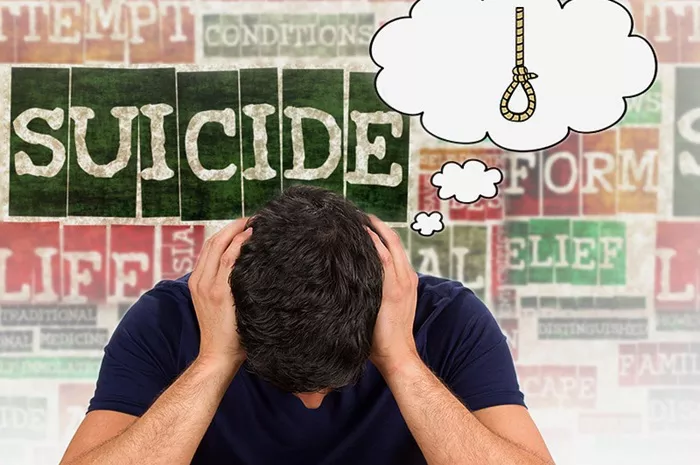The intersection of mental illness and violence is a topic that often sparks fear, misunderstanding, and stigmatization in society. While it’s crucial to address the potential risks associated with certain mental health conditions, it’s equally important to approach the subject with nuance, empathy, and an understanding of the complex factors at play. In this article, we delve into the relationship between mental illness and violent behavior, dispelling myths and shedding light on the realities faced by individuals living with mental health conditions.
Dispelling Myths: Mental Illness and Violence
One of the most pervasive misconceptions about mental illness is the belief that individuals with such conditions are inherently violent or dangerous. In reality, the vast majority of people living with mental health disorders are not violent towards others. Research consistently demonstrates that individuals with mental illness are far more likely to be victims of violence than perpetrators.
The American Psychiatric Association emphasizes that mental illness alone is not a reliable predictor of violent behavior. Instead, factors such as substance abuse, socioeconomic stressors, trauma history, access to firearms, and lack of access to mental health treatment play significant roles in increasing the risk of violence.
Exploring the Link Between Mental Illness and Violence
While the majority of individuals with mental illness are not violent, certain conditions may be associated with an increased risk of aggressive or harmful behavior in some cases. It’s important to recognize that these instances are relatively rare and do not represent the experiences of the broader mental health community. Let’s explore some mental health conditions that may be associated with heightened risk:
Psychotic Disorders: Conditions such as schizophrenia and schizoaffective disorder may involve symptoms such as hallucinations, delusions, and disorganized thinking. In some cases, individuals experiencing psychosis may become agitated or paranoid, leading to behaviors that pose a risk of harm to themselves or others.
Bipolar Disorder: Bipolar disorder is characterized by episodes of mania (elevated mood) and depression. During manic episodes, individuals may experience heightened energy levels, impulsivity, and irritability, which can sometimes escalate to aggressive or reckless behavior.
Borderline Personality Disorder (BPD): Individuals with BPD may struggle with intense emotional instability, impulsivity, and difficulty regulating their emotions. While most people with BPD are not violent, some individuals may engage in self-harming behaviors or experience intense interpersonal conflicts that could lead to aggression.
Substance Use Disorders: Substance abuse can exacerbate underlying mental health issues and impair judgment, increasing the risk of violent behavior. Alcohol, in particular, is associated with a higher likelihood of aggression and violence when consumed in excess.
It’s important to note that the presence of a mental health condition does not automatically indicate a propensity for violence. Many individuals with these disorders lead fulfilling and non-violent lives with proper treatment and support.
Risk Factors for Violent Behavior
While mental illness can be a contributing factor to violent behavior in some cases, numerous additional factors intersect to influence the likelihood of aggression or harm. These risk factors include:
History of Trauma: Individuals who have experienced trauma, such as physical or sexual abuse, may be at a heightened risk of developing mental health issues and engaging in violent behavior.
Substance Abuse: Substance abuse significantly increases the risk of violence, as intoxication can impair judgment, increase impulsivity, and lower inhibitions.
Access to Firearms: Easy access to firearms is a significant risk factor for lethal violence, particularly in cases of impulsive or suicidal behavior.
Social and Economic Stressors: Poverty, unemployment, homelessness, and social isolation can contribute to feelings of despair and hopelessness, increasing the risk of aggressive or self-destructive behavior.
Lack of Access to Mental Health Care: Limited access to mental health treatment and support services can prevent individuals from receiving timely interventions and managing their symptoms effectively.
Preventing Violence: Strategies for Intervention and Support
Addressing the complex interplay of factors contributing to violent behavior requires a multifaceted approach that prioritizes early intervention, access to mental health care, and community support. Some strategies for preventing violence and supporting individuals with mental illness include:
Early Intervention and Treatment: Timely identification and treatment of mental health issues can help mitigate the risk of escalation to violence. Accessible and culturally competent mental health services are essential for reaching individuals in need.
Supportive Environments: Creating supportive and inclusive communities that prioritize mental health awareness, education, and stigma reduction can help individuals feel more comfortable seeking help and support.
Crisis Intervention Services: Establishing crisis intervention teams trained in de-escalation techniques and mental health first aid can provide immediate support to individuals experiencing mental health crises.
Education and Awareness: Promoting accurate information about mental illness and challenging stereotypes and stigma can help combat misconceptions and foster empathy and understanding.
Addressing Social Determinants of Health: Addressing underlying social and economic factors such as poverty, inequality, and access to education can help reduce the risk of violence and promote mental well-being in communities.
By prioritizing prevention, early intervention, and comprehensive support systems, we can work towards creating safer and more inclusive communities for individuals living with mental illness.
Conclusion: Compassion, Understanding, and Support
While the relationship between mental illness and violence is complex and multifaceted, it’s essential to approach the topic with empathy, nuance, and a commitment to promoting mental health awareness and support. By challenging stigma, advocating for accessible mental health care, and addressing underlying social determinants of health, we can create environments that prioritize compassion, understanding, and support for all individuals, regardless of their mental health status. Together, we can work towards a future where everyone has the opportunity to live healthy, fulfilling lives free from violence and discrimination.
[inline_related_posts title=”You Might Be Interested In” title_align=”left” style=”list” number=”6″ align=”none” ids=”8778,8772,8769″ by=”categories” orderby=”rand” order=”DESC” hide_thumb=”no” thumb_right=”no” views=”no” date=”yes” grid_columns=”2″ post_type=”” tax=””]































